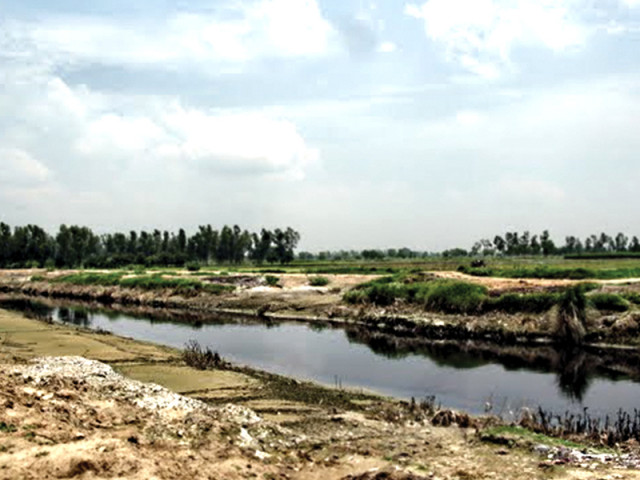Municipal drain: Meeting to be held next week to discuss temporary relief for villagers
Commissioner says drain can’t pass through SIE, alternative layout will cost Rs16m.

A meeting will be held next week to find a temporary solution to the problems faced by more than 3,000 residents of the Nehla and Baikot villages on account of stagnant sewage in the area, The Express Tribune has learnt.
Commissioner Jawad Rafiq Malik heads the committee set up two weeks ago by Chief Minister Shahbaz Sharif on receiving several complaints that the Sunder Industrial Estate (SIE) administration had blocked the drain that carried waste from the Nehla and Baikot villages into the Rohi Drain.
The villagers said the SIE management had promised to allow them access to Rohi Drain but later backed out from the agreement after the estate was developed in January 2007.
Malik said the sewerage line from the village that opened into the Rohi Drain passed through the SIE premises thus making it ‘technically unfeasible’ to connect it directly. Moreover, he said, the village sewage contained large amounts of animal waste.
HE said the solution was for the drain to go around the SIE. He said the National Engineering Services Pakistan Limited (Nespak) had already done a feasibility report citing an ‘ideal solution’ in extending and connecting the drain to Rohi Drain through an alternate route and not through the SIE area. A feasibility report, he said, estimated a cost of Rs16 million for the project.
“We have requested funds from the government. Once the funds are available, it may take about six months to complete the project.”
For the time being, he said, a temporary solution will be discussed in the meeting next week.
Tariq Sindhu, a resident of Nehla village, said the SIE administration, had backed out of their commitment. The SIE administration, however, denied any agreement on the subject.
Sindhu said after several complaints the village’s MPA, Khokhar, built a sewage line circling the 1,100-acre Nehla village, but they (the villagers) were still not allowed to dispose their waste directly into the Rohi Drain. Due to this, he said, the low-lying areas around the village had turned into cess pools.
The villagers said the quality of groundwater which they use for drinking and irrigation was also being affected. Shabbir, a resident of Nehla village, said stomach infections and diseases were rampant in the area.
Published in The Express Tribune, August 7th, 2012.



















COMMENTS
Comments are moderated and generally will be posted if they are on-topic and not abusive.
For more information, please see our Comments FAQ